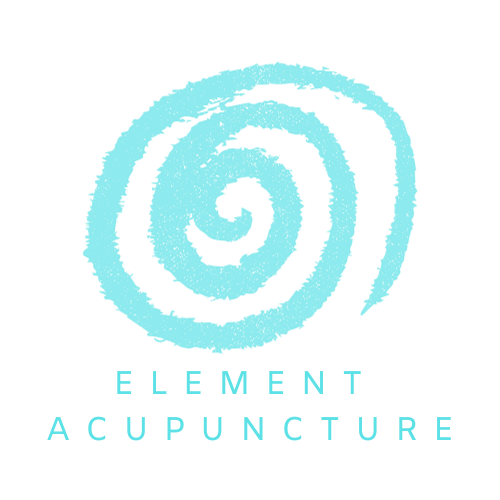Beyond Needles: How Acupuncture Transforms Physical and Emotional Wellbeing
In our modern world, stress, chronic pain, and emotional fatigue have become common companions. Many people seek relief in pharmaceuticals, quick fixes, or temporary distractions. Yet, there is an ancient practice that offers something deeper—acupuncture, a holistic approach that not only addresses physical symptoms but also restores emotional balance and promotes lasting wellbeing.
As an acupuncture practitioner and mental health professional with over 20 years of experience in healthcare, I have seen first-hand how acupuncture extends far beyond the simple insertion of needles. It’s a profound healing modality that works on multiple levels—body, mind, and spirit.
Acupuncture: More Than Just Needles
When many think of acupuncture, they envision fine needles strategically placed on the body to relieve pain. But acupuncture is much more than that. Rooted in Traditional Chinese Medicine (TCM), acupuncture works on the principle of restoring the flow of Qi (vital life energy) through pathways known as meridians. Blockages or imbalances in this energy can manifest as physical or emotional illness.
By stimulating specific points, acupuncture encourages the body’s natural healing response. It not only alleviates physical symptoms like chronic pain, migraines, and digestive issues but also nurtures emotional resilience and mental clarity.
Physical Benefits: Healing From the Inside Out
Acupuncture has been widely researched for its ability to alleviate physical health concerns, including:
✅ Chronic Pain: Studies show significant pain relief for conditions such as back pain, neck pain, osteoarthritis, and migraines (Vickers et al., 2018).
✅ Digestive Health: Acupuncture can regulate digestion and treat conditions like irritable bowel syndrome (Zhou et al., 2020).
✅ Women’s Health and Fertility: It improves blood flow to reproductive organs, regulates hormones, and supports IVF treatments (Smith et al., 2019).
✅ Post-Surgery and Chemotherapy Recovery: It reduces nausea, vomiting, and fatigue (Ezzo et al., 2015).
From my own clinical practice, I’ve seen clients regain mobility after years of chronic pain and women who struggled with fertility achieve successful pregnancies after incorporating acupuncture into their treatment plans.
Emotional Wellbeing: Restoring Balance from Within
Beyond physical ailments, acupuncture profoundly impacts emotional health. Emotions in Chinese Medicine are intricately connected with organ systems—the Liver governs anger, the Heart joy, the Lungs grief, the Spleen worry, and the Kidneys fear. Emotional imbalances often show up as physical symptoms and vice versa.
Emotional and Mental Health Benefits Include:
✅ Stress and Anxiety Reduction: Acupuncture regulates the autonomic nervous system and reduces cortisol levels, promoting relaxation and reducing anxiety (Amorim et al., 2018).
✅ Depression Support: Meta-analyses indicate acupuncture is an effective adjunct therapy for mild to moderate depression (Zhang et al., 2010).
✅ Improved Sleep and Energy: By calming the mind and restoring balance, acupuncture can treat insomnia and fatigue (Cheuk et al., 2012).
In my sessions, I have witnessed clients report deep emotional release, clarity in decision-making, and a sense of peace they hadn’t felt in years. It’s not uncommon for people to describe feeling “lighter” or “more themselves” after treatment.
The Professional Impact: Holistic Wellness for Leadership and Teams
In today’s professional environments, leaders and teams are under constant pressure. Burnout, decision fatigue, and chronic stress are common. Acupuncture offers an evidence-based solution to support workplace wellbeing, reduce absenteeism, and enhance productivity.
A 2020 study found that corporate acupuncture programs reduced employee stress by up to 60%, improving focus and team morale (Ching et al., 2020). Whether for healthcare professionals, executives, or frontline staff, acupuncture provides a vital pause for restoration and reflection.
Beyond Symptom Management: A Holistic Transformation
Acupuncture’s strength lies in addressing the root cause of imbalance rather than masking symptoms. It encourages individuals to reconnect with their bodies, emotions, and inner wisdom. In Five Element Acupuncture, for example, treatment goes even deeper—addressing the interplay of the elements (Wood, Fire, Earth, Metal, Water) that govern our physical health, emotional landscape, and life’s journey.
For me, acupuncture is more than a profession—it’s a calling that aligns with my belief in whole-person care. Whether supporting clients through fertility challenges, stress, or chronic pain, it’s about creating a safe space for healing and transformation.
Emotional Intelligence, Soft Skills & the Power of Acupuncture in the Workplace
In today's fast-paced, high-performance work environments, emotional intelligence (EI) and soft skills are no longer optional—they are essential for building resilient teams and cultivating empathetic leadership. Incorporating acupuncture as part of a workplace wellbeing strategy demonstrates a company’s commitment to fostering these qualities. Acupuncture not only addresses physical stress and fatigue but also supports emotional balance, self-awareness, and emotional regulation—key components of EI.
By helping employees manage stress, anxiety, and burnout, acupuncture can enhance their capacity for focus, empathy, and effective communication. Leaders and teams who feel supported in their wellbeing are more likely to engage in meaningful collaboration, creative problem-solving, and compassionate decision-making. Companies that integrate holistic wellbeing solutions like acupuncture cultivate a professional persona that is relatable, human-centered, and forward-thinking—giving them a competitive edge in attracting and retaining top talent.
Final Thoughts: Beyond Needles, Toward Wholeness
Acupuncture is not just about needles. It’s about restoring balance, igniting the body’s innate healing, and offering compassionate support for both physical and emotional wellbeing.
If you’ve never considered acupuncture, perhaps now is the time to explore what lies beyond the needles—toward a more vibrant, balanced you.
Interested in learning more?
📞 Book a free consultation
🌐 Visit [YourWebsite.com]
💬 Follow me here on LinkedIn for more insights
References:
Vickers, A.J. et al. (2018). "Acupuncture for chronic pain: Update of an individual patient data meta-analysis." Journal of Pain. Link
Amorim, D. et al. (2018). "Acupuncture and its role in the treatment of anxiety disorders." Current Psychiatry Reports. Link
Smith, C. et al. (2019). "Acupuncture for subfertility." Cochrane Database. Link
Ching, A. et al. (2020). "Corporate acupuncture for employee stress reduction." Integrative Medicine. Link

